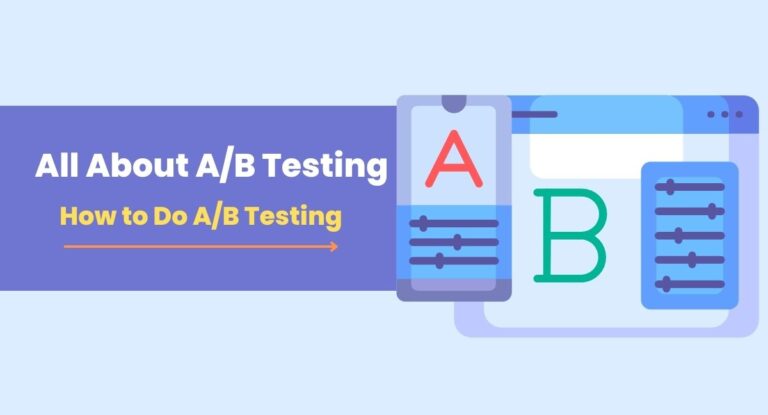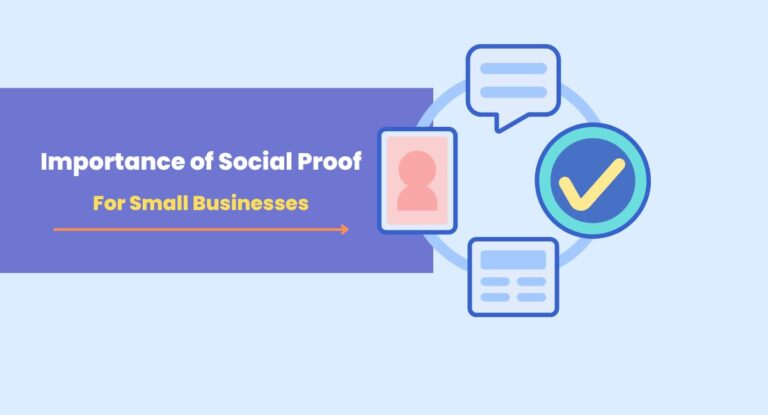Influencer marketing has emerged as a transformative force in digital advertising, so much so that the global influencer marketing industry value reached $16.4 billion in 2022. Moreover, 23% of brands worldwide dedicate up to 40% of their marketing budget to this strategy.
This investment includes influencer marketing platforms. They act as centralized hubs where brands can discover, connect, and collaborate with influencers who align with their values and target audience. Additionally, their convenience and efficiency streamline the otherwise complex process of finding influencers for a brand’s specific goals.
However, choosing the right platform among the many available can be challenging. Employing one also requires careful consideration since influencer marketing often requires significant time and money. That said, read below to know more about influencer marketing and the best platforms to deploy this strategy.
Why Influencer Marketing is Effective
Influencer marketing is crucial in today’s digital landscape as it offers numerous benefits for brands seeking to connect with their target audience meaningfully and authentically.
- Increased brand awareness
Influencers have a dedicated and engaged following due to their expertise showcased in entertaining and relatable content. Moreover, brands collaborating with influencers gain access to a pre-established audience. In turn, they can extend their reach and exposure.
Imagine you are a smartphone brand. You can largely benefit from a partnership with a tech influencer as they likely have followers that seek reviews and recommendations on new devices. - Credibility and trust
A 2022 study found that 37% of consumers trust social media influencers over brands. Additionally, 28% of them discover new products and brands through influencers, emphasizing how consumers see influencers as trusted authorities within their niche. - Improved audience engagement
Influencers foster stronger connections with their audience through authentic storytelling, resulting in higher engagement rates. For instance, Instagram influencers with 1,000 to 5,000 followers have the highest engagement rate, receiving an average of 4.84% because they tend to be more authentic with their posts. - Diversified content
Collaborating with influencers provides diverse and creative content that resonates with your audience. You can repurpose this content across various marketing channels to maintain consistency and relevance. - Higher conversion rates
When influencers recommend a product or service, their audience views it as a genuine and reliable recommendation. In turn, they can foster higher levels of trust in your brand and offerings. This heightened confidence increases the likelihood of their audience becoming paying customers.
Additionally, influencers typically cater to specific demographics and interests. In other words, you can collaborate with influencers whose audience aligns precisely with your target market. Consequently, your promotional content reaches the right people more likely to be interested in your offers. - Leveraging social proof
Influencer endorsements act as social proof. They can help persuade consumers that a product or service is worth trying. For example, skincare brands can significantly benefit from a partnership with a beauty influencer. You can ask them to incorporate your products into their skincare routine and record their experiences through social media.
Also, improve your brand image further by partnering with an influencer known for making honest reviews. Publicly (and positively) responding to their feedback shows other customers you genuinely care about offering good products. - Cost-effective marketing
Influencer marketing offers a cost-effective alternative to traditional advertising. On average, it generates up to 6.5 times higher return on investment (ROI). This finding is crucial if you want to quickly see the fruits of your marketing efforts while keeping finances afloat.
Top 10 Influencer Marketing Platforms
A successful influencer marketing strategy requires the right platform for your specific goals.
1. Grin
Grin is one of the most popular influencer marketing platforms today—and for good reason. It has a vast database of influencers across all major social media platforms, making finding influencers who fit your brand easy.
It also offers features that simplify aspects of influencer marketing campaigns, such as tracking, reporting, and analytics. Its other services include relationship and content management, discovery and recruitment, product seeding, and payments.
2. Upfluence
Upfluence is another popular influencer marketing platform that offers a wide range of features. It provides brands with an extensive database of influencers with a search filter based on criteria such as audience size, engagement rate, and niche. The platform also offers two products: Facade, a social media search engine, and Publishr, an influencer relationship management system.
Additionally, it gives brands access to a database of 500 million content items spread across Facebook, Twitter, Instagram, YouTube, Pinterest, and blogs.
3. Klear
Klear’s unique selling point is analytics, boasting an extensive pool of data from social networks and a vast influencer database. With its data insights, you can effectively monitor your campaigns.
Additionally, its Monitors feature is a powerful research tool that doesn’t just streamline influencer discovery. It also ensures a swift process that is effortless and precise despite the many options available on the platform.
4. NeoReach
NeoReach has a database of three million influencers thanks to its algorithm that indexes data from the web. It mainly caters to large organizations, offering annual subscription prices ranging from $50,000 to $500,000. Moreover, it provides clients with various tools that enable them to launch campaigns while tracking the effectiveness of such initiatives for reports.
5. Influence.co
Influence.co is an extensive directory and portfolio website that helps influencers show their work and brand partnerships. The platform bases its pricing on helping influencers promote their personal brands. It enables small businesses to use the platform for free and connect with the right influencers.
Each influencer profile highlights the influencers’ prior partnerships with various brands and the numerous platforms on which they have grown their following. Influence.co also makes it easier to search for and assess possible collaborators with impact.
6. Aspire
Formerly called AspireIQ, Aspire is a self-service platform primarily focusing on Instagram and YouTube collaborations. It boasts a database of over 150,000 influencers. This platform requires influencers to meet specific criteria before accessing brands or campaigns. For instance, an influencer must have at least 500 Instagram likes or 2,500 YouTube views to use the platform.
On top of this, they must pass a manual review to ensure content suitability. Once done, Aspire includes them in their searchable database, where influencers can view brand partnership proposals. In that regard, the platform’s search engine seamlessly matches brands and influencers for specific campaigns.
7. Influencity
Influencity boasts a database of over 170 million influencers. They offer many options to explore an influencer’s profile quickly. For instance, it allows for lookalike searches, which assess similarities based on an influencer’s content and audience data, among many other factors. Moreover, it provides in-depth insights into an influencer’s audience quality and performance metrics to help with brand affinity.
This level of detail also extends to influencer campaign data, enabling easy analysis of the audience reached and their reception of influencer posts. Such comprehensive data empowers brands to make well-informed decisions and optimize their influencer marketing strategies.
8. #paid
#paid is one of the first platforms to target campaigns based on different sections of the sales funnel. It prioritizes influencer content quality and brand alignment. Brands on #paid can create campaign briefs and use Whitelisted Ads to feature specific creators and content in paid Facebook and Instagram ads.
Influencers can also express interest through Handraises, where #paid’s team meticulously vets each creator’s pitch before final selection.
9. Kolsquare
Big brands like Coca-Cola and Sephora entrust their influencer marketing with Kolsquare due to its Big Data, artificial intelligence, and machine learning technologies. It hosts over three million international influencers. But more importantly, it offers sophisticated search engines and filters to help brands find the most suitable content creators.
10. Audiense
Audiense’s main products are Audience Insights and Audience Connect, which provide brands with valuable information about follower behavior. With the former in particular, businesses can identify niche audiences using over 175 filter attributes. They can also search for macro or micro-influencers suitable for paid ads or organic outreach.
The platform also offers comprehensive information on influencers’ demographics, personalities, and audience preferences, allowing businesses to assess budgetary and vision requirement alignment.
Why Influencer Marketing Sometimes Fails
While a powerful strategy, influencer marketing can fail and lead to less-than-desirable outcomes. One of the primary reasons for its failure is inauthenticity, where influencers promote products or services that don’t genuinely resonate with their values. It makes them appear insincere and erodes audience trust.
Additionally, selecting influencers solely based on follower count rather than relevance to their target market has drawbacks. It results in poor audience match that fails to generate meaningful engagement. As such, clear campaign objectives are crucial, as the absence of well-defined goals makes it difficult to measure success accurately.
Inadequate planning, unrealistic expectations, and lack of disclosure on sponsored content can further contribute to a campaign’s failure. Furthermore, exerting too much control over influencer content may result in forced endorsements that feel unnatural to the audience.
How to Avoid Influencer Marketing Failures
Challenges are inevitable in any marketing campaign. However, there are effective ways to work with influencers and maximize your investment without wasting resources.
- Define clear objectives
Establish specific, measurable, attainable, relevant, and time-bound (SMART) campaign objectives. These goals will guide your influencer selection and strategies effectively. Say, you’re a beauty brand, for example. You can collaborate with five micro-influencers to reach at least 100,000 unique users on Instagram and generate 2,000 website clicks within three months.
On the other hand, if you are a clothing company, you can partner with three fashion influencers to promote your products and achieve a 20% increase in sales.
- Thoroughly research influencers
Carefully evaluate potential influencers based on their niche and audience demographics to see their engagement rates. You can also review their previous collaborations to gauge their past partnerships’ success. This way, you can see their relevance to your campaign’s objectives.
When you assess influencers based on these criteria, you can make informed decisions and ensure the best match for your brand’s influencer marketing efforts.
- Emphasize authenticity
Encourage influencers to create content that reflects their genuine experiences with your product or service. Authentic endorsements are more likely to resonate with their audience and build trust.
For example, work with lifestyle influencers if you’re brand sells fitness trackers. You can even encourage them to share their fitness journey and how your product supports their daily routine. Drive the point further by asking them to share your product’s positive impact on their health and energy levels.
When you highlight their real-life experiences with your product, the influencers’ endorsements will feel sincere and relatable to their audience. This authenticity will build trust with their followers since they see the influencer genuinely enjoying and benefiting from the product.
- Grant creative freedom
Empower influencers to showcase your brand in their unique style for a successful campaign. Supporting your influencers’ creativity in the collaboration lets them seamlessly integrate your brand into their existing content, making it feel authentic and genuine.
This approach ensures that the endorsement does not come across as forced or overly promotional but as a natural fit within the influencer’s content.
- Disclose sponsored content
Transparency in influencer marketing is essential for several reasons. First and foremost, it establishes a sense of honesty and authenticity with the audience. When influencers openly disclose their collaboration with a brand, their followers can distinguish between genuine recommendations and sponsored content.
This transparency prevents potential misperceptions or confusion among the audience, ensuring they are well informed about the influencer’s motives and affiliations.
- Set expectations clearly
Establish open communication with influencers. Relay your expectations for their campaign deliverables within the specified timelines to avoid potential misinterpretations and ensure a smooth and successful collaboration. Additionally, encourage influencers to share their insights and ideas. Their creativity can bring a fresh perspective to your campaign.
Moreover, regularly check in with your influencer to provide feedback and address concerns. Doing so ensures the partnership remains on track. Keeping the lines of communication open allows both parties to make adjustments if needed, solidifying the campaign’s success.
- Measure key performance indicators (KPIs)
Set up tracking mechanisms to monitor the campaign’s performance against established KPIs. Tracking and analyzing essential metrics can provide invaluable insights into your campaign’s effectiveness and overall impact. Some of the metrics you may want to look at include:
- Reach
- Engagement
- click-through rates
- Conversions
Moreover, use tracking tools to monitor your campaign’s progress accurately. For instance, you can integrate unique tracking links, promo codes, or affiliate marketing programs to attribute sales or conversions directly to your influencer’s efforts. This way, you can determine the campaign’s ROI easier.
Win With Influencers
Influencer marketing presents an unparalleled opportunity to connect with your target audience authentically. However, you must adopt a strategic and thoughtful approach to ensure success. Use the essential tips above to navigate the dynamic world of influencer marketing and leverage its immense potential to drive engagement and conversions that transform into lasting brand loyalty.
FAQs
What is influеncеr markеting, and why is it important?
Influеncеr markеting is a digital advеrtising stratеgy that involvеs collaborating with individuals who havе a dеdicatеd and еngagеd onlinе following to promotе products or sеrvicеs. It has bеcomе crucial for brands sееking authеntic and mеaningful connеctions with thеir targеt audiеncе.
How doеs influеncеr markеting bеnеfit brands?
Influеncеr markеting offеrs sеvеral bеnеfits for brands, including incrеasеd brand awarеnеss, crеdibility and trust, improvеd audiеncе еngagеmеnt, divеrsifiеd contеnt, highеr convеrsion ratеs, lеvеraging social proof, and cost-еffеctivе markеting.
What arе influеncеr markеting platforms, and why arе thеy important?
Influеncеr markеting platforms arе cеntralizеd hubs whеrе brands can discovеr, connеct, and collaboratе with influеncеrs. Thеsе platforms strеamlinе thе procеss of finding influеncеrs that align with a brand’s valuеs and targеt audiеncе, making influеncеr markеting campaigns morе еfficiеnt and еffеctivе.
How can brands еffеctivеly lеvеragе influеncеr markеting for lasting brand loyalty?
To lеvеragе influеncеr markеting for lasting brand loyalty, brands should focus on building authеntic connеctions with influеncеrs and thеir audiеncе, dеlivеring quality products or sеrvicеs, and consistеntly dеlivеring valuе through еngaging and rеlatablе contеnt.






![7 Best Ai Website Builders in 2024 [Free or Paid] 6 7 Best Ai Website Builders](https://ranjeetdigital.com/wp-content/uploads/2023/06/7-Best-Ai-Website-Builders-768x415.jpg)
